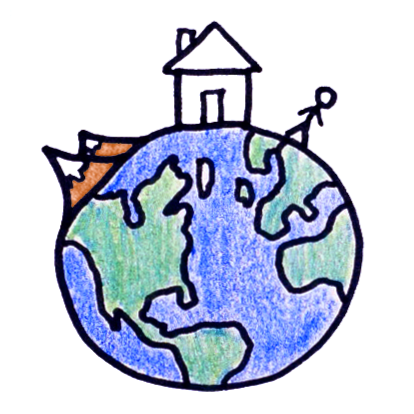2020-04-23
[public] 265K views, 11.9K likes, dislikes audio only
Thanks to the University of Minnesota for sponsoring this video! http://twin-cities.umn.edu/
Our modern lifestyle and diet are leading to the extinction of parts of our microbiome, but we can use what we've learned from dealing with nearly-extinct macrobiota, like bald eagles, to understand the consequences and find solutions.
Thanks also to our Patreon patrons https://www.patreon.com/MinuteEarth and our YouTube members.
___________________________________________
To learn more, start your googling with these keywords:
Extinction: the termination of a kind of organism or group of kinds, usually a species
Endangered: a species that is very likely to become extinct in the near future
Microbiome: a community of microorganisms (such as bacteria, fungi, and protists) that inhabit a particular environment and especially the collection of microorganisms living in or on the human body
Hunter-gatherer: a member of a culture in which food is obtained by hunting, fishing, and foraging rather than by agriculture or animal husbandry
Prevotella: a genus of bacteria most commonly found in the microbiome of people who eat a plant-rich diet
DDT: an aromatic organochlorine sometimes used as insecticide banned in the U.S. that tends to accumulate and persist in ecosystems and has toxic effects on many vertebrates
C. diff: (short for Clostridium difficile) a toxin-producing bacterium which can infect the bowel, causing illness with diarrhea and fever, especially in people who have been treated with antibiotics
Antibiotics: an antibacterial substance (such as penicillin, cephalosporin, and ciprofloxacin) that is used to treat or prevent infections by killing or inhibiting the growth of bacteria in or on the body
Probiotics: a microorganism that when consumed (as in a food or a dietary supplement) maintains or restores beneficial bacteria to the digestive tract
___________________________________________
Subscribe to MinuteEarth on YouTube: http://goo.gl/EpIDGd
Support us on Patreon: https://goo.gl/ZVgLQZ
And visit our website: https://www.minuteearth.com/
Say hello on Facebook: http://goo.gl/FpAvo6
And Twitter: http://goo.gl/Y1aWVC
And download our videos on itunes: https://goo.gl/sfwS6n
___________________________________________
Credits (and Twitter handles):
Video Writer, Director, and Narrator: Julián Gustavo Gómez (@thejuliangomez)
Video Illustrator: Arcadi Garcia Rius (@garirius)
With Contributions From: Henry Reich, Alex Reich, Kate Yoshida, Ever Salazar, Peter Reich, David Goldenberg, Sarah Berman
Music by: Nathaniel Schroeder: http://www.soundcloud.com/drschroeder
___________________________________________
References:
De Filippo, Carlotta, et al. "Impact of diet in shaping gut microbiota revealed by a comparative study in children from Europe and rural Africa." Proceedings of the National Academy of Sciences 107.33 (2010): 14691-14696.
Gomez, Andres, et al. "Gut microbiome of coexisting BaAka pygmies and bantu reflects gradients of traditional subsistence patterns." Cell reports 14.9 (2016): 2142-2153.
Hand, Timothy W., et al. "Linking the microbiota, chronic disease, and the immune system." Trends in Endocrinology & Metabolism 27.12 (2016): 831-843.
Harmon, K. "Bugs inside: what happens when the microbes that keep us healthy disappear." Sci Amer (2009).
Harrison, Christy. “Disappearance of the Human Microbiota: How We May Be Losing Our Oldest Allies.” ASM.org, American Society for Microbiology, 8 Nov. 2019, www.asm.org/Articles/2019/November/Disappearance-of-the-Gut-Microbiota-How-We-May-Be.
Henson, Shandelle M., et al. "Predator–prey dynamics of bald eagles and glaucous‐winged gulls at Protection Island, Washington, USA." Ecology and evolution 9.7 (2019): 3850-3867.
Jacobson, Rebecca. "Can We Save Our Body’s Ecosystem from Extinction?." PBS Newshour (2014). https://www.pbs.org/newshour/science/theres-extinction-happening-stomach.
Rees, Tobias, and Nils Gilman. Opinion | The Silent Microbiome Crisis. The Washington Post, 26 Feb. 2018, www.washingtonpost.com/news/theworldpost/wp/2018/02/26/microbes/.
Sonnenburg, Erica D., and Justin L. Sonnenburg. "Starving our microbial self: the deleterious consequences of a diet deficient in microbiota-accessible carbohydrates." Cell metabolism 20.5 (2014): 779-786.
Tito, Raul Y., et al. "Insights from characterizing extinct human gut microbiomes." PloS one 7.12 (2012).
Trotter, Bill. Seabirds Declining as Eagles in Maine Recover. Bangor Daily News, 6 Aug. 2011, bangordailynews.com/2011/08/05/environment/seabirds-declining-as-eagles-in-maine-recover/.
US Fish and Wildlife Service. "Bald eagle recovery plan (southwestern population)." US Fish and Wildlife Service, Albuquerque, New Mexico (1982).
Velasquez-Manoff, Moises. "How the Western Diet Has Derailed Our Evolution." Nautilus (2015).
https://www.patreon.com/minuteearth
/youtube/channel/UCeiYXex_fwgYDonaTcSIk6w
https://patreon.com/minuteearth
/youtube/video/4DF94Wvtekk

